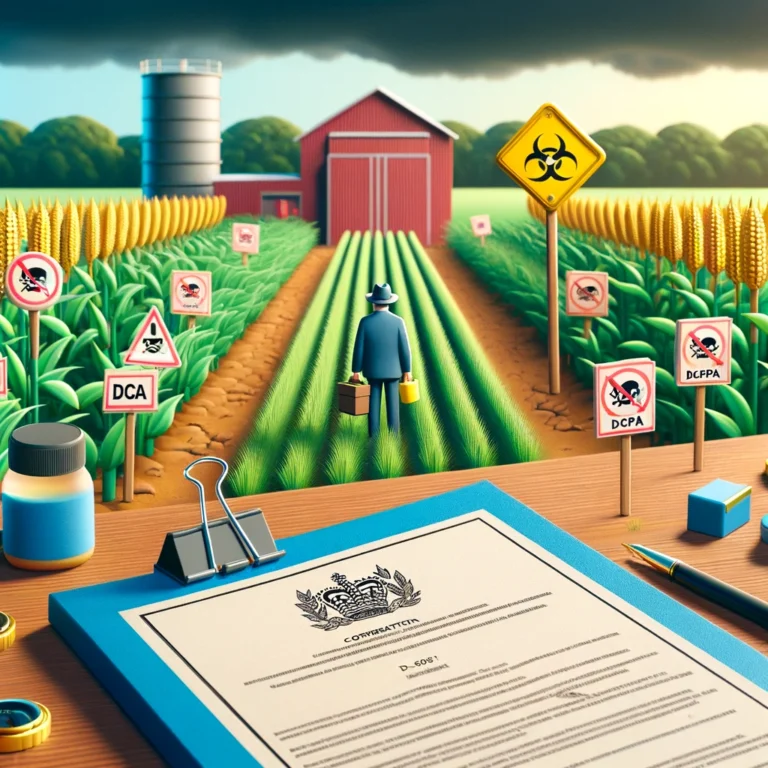
Overview of DCPA and Its Importance in Agriculture
DCPA, or dichloropropene, is a soil fumigant primarily used in agriculture to control various soil-borne pests and diseases. It has been a valuable tool for farmers, especially in the cultivation of high-value crops. However, concerns about its safety and environmental impact have been rising in recent years. As the agricultural landscape continues to evolve, regulatory bodies are revisiting the approval and use of such chemicals, prompting significant decisions that could reshape farming practices.
Understanding the Implications of the Recent Decision
The decision to halt the use of all products containing DCPA by the Australian government underscores growing apprehensions within the agricultural community and the general public about chemical safety.
Key considerations include:
- Health Risks: Potential health hazards associated with DCPA and its byproducts have raised alarms among health officials and environmental advocates.
- Environmental Concerns: The effects of soil and water contamination resulting from chemical runoff can pose lasting damage to ecosystems.
- Alternative Solutions: The need for sustainable and non-chemical alternatives has become increasingly evident in light of such bans.
With ongoing debates about chemical use in agriculture, this decision marks a significant turning point not only for Australian farmers but for global agricultural practices.
The Impact on Farmers and the Agricultural Industry
The announcement has sent ripples through the farming community, with many producers expressing concern over the loss of a reliable pest control method.
Challenges Ahead for Farmers
Farmers relying on DCPA for effective pest management now face several challenges, including:
- Crop Yield Risks: Without effective pest control solutions, crop yields may be adversely affected, leading to economic losses.
- Increased Costs: The transition to alternative pest control methods may require significant investment, both financially and in terms of training and education.
- Market Competition: With the potential risk of reduced yields, farmers may find themselves at a competitive disadvantage compared to those using fewer restrictions in other regions.
Expected Transition towards Sustainable Practices
While this move presents challenges, it also provides an opportunity for farmers to explore and adopt more sustainable agricultural practices. The focus is shifting towards integrated pest management (IPM) strategies, which emphasize the use of biological control and farming techniques that limit dependency on chemicals.
Innovative solutions may include:
- Biocontrol Agents: Utilizing natural predators or parasites to combat pest issues.
- Cultural Practices: Crop rotation, cover cropping, and soil health management to enhance plant resilience against pests.
- Technology Integration: Leveraging data analytics and precision agriculture to monitor pest populations and improve management practices.
Future Outlook for Agriculture Without DCPA
The revision of DCPA’s usage marks a vital chapter in redefining agricultural regulations, not just in Australia but globally. As governments around the world evaluate their regulatory frameworks, Australians find themselves part of a larger conversation about agricultural safety, environmental stewardship, and sustainability.
Government and Industry Collaboration Is Key
Moving forward, collaborative efforts between government agencies, research institutions, and the agricultural industry will be crucial. Such partnerships can help develop and promote effective alternative methods and ensure farmers have access to the resources they need to adapt.
Strategies for collaboration could include:
- Research Funding: Allocating funds for research on alternative pest control measures and integrated management systems.
- Farmer Education: Providing training and resources to help farmers transition to sustainable practices.
- Incentive Programs: Implementing programs that reward farmers for adopting environmentally-friendly practices.
Conclusion
The ban on DCPA is a significant decision that indicates a broader shift towards prioritizing health and environmental safety in agriculture. While it poses challenges for farmers who relied on this soil fumigant, it opens the door to innovative pest management strategies, sustainable practices, and collaborative efforts that could ultimately foster a more resilient agricultural sector.
As the agricultural sector adapts to these changes, the ongoing dialogue about chemical use in farming will be essential to ensure the health of both consumers and the environment. It continues to be a dynamic and complex aspect of agriculture that demands attention and thoughtful discussion from all stakeholders involved.